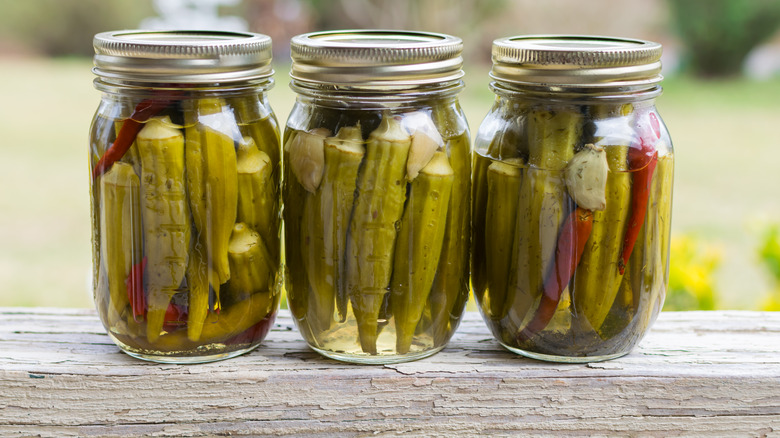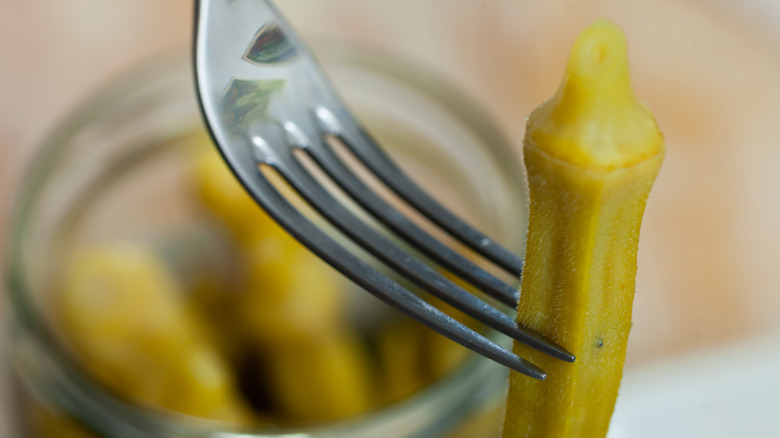The Simple Tip To Follow To Prevent Pickled Okra From Becoming Slimy
For skeptics and lifelong fans alike, it's hard to beat the joys of pickled okra. The green flowering fruit, sometimes known as lady's fingers, has likely origins in northeast Africa, but they've made such an impact stateside that they are practically synonymous with Southern cooking. There is one thing, however, that can sour the pickled okra experience. When pickled okra turns slimy, the yum factor goes off the rails. There is one easy way to prevent this from happening in the first place, though, and that is to leave your okra whole when you're pickling it.
Okra slime, or mucilage, is a type of sugar and is only released in the pickling process if the pods have been crushed, split, or cut in some way. The vinegar in pickling liquid does a good deal to nullify the slime factor, but the simple yet crucial key is to ensure your okra tubes are packed tight without any breakage. With this in mind, you're ready to embark on a pickling journey. If before this you need a refresher on the overall workflow, check out this pickling process overview.
How to pickle okra
Pickling okra is the best way to beat sliminess, but it's also a fantastic way to give the fruit a crunch and imbue it with various brine and spice-based flavors. Steal a step from one of the masters of food, Wolfgang Ban of Seäsonal in New York City, by pickling okra using his brine recipe. It uses salt, garlic cloves, white and black peppercorns, coriander seeds, mustard seeds, caraway seeds, lemon zest, and fresh herbs, all of which can be adjusted to suit your tastes. Okra also goes well with spice, so adding red pepper flakes, a little cayenne, or even a halved jalapeño pepper to the pickling liquid could give the okra a fiery kick. Once you've cooked your brine, you can pack and seal the okra pods overnight or even for a few weeks, depending on how intense you want the infusion to be.
The okra preparation need not be enjoyed only in its straight-out-the-jar form. Pickled okra makes for a fantastic fried treat, too, combining (arguably) its best two preparations. You can fry the whole, breaded okra pods in about an inch of oil for a minute or two — the breading should stick on its own due to the okra's natural and adopted liquidity. You can also try this recipe for crispy roasted okra using the pickled variety and play around with cooking time to get the crunch where you want it.

